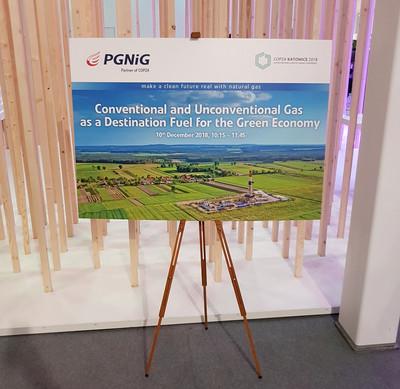
Background for the Discussion
The 2030 Agenda for Sustainable Development consists of 17 Sustainable Development Goals (SDGs) that comprise an integrated whole that the global community is striving to achieve. The goals are all equally important and none of them is more equal than the others. The future that we seek is thus not only green, it is also built on the premises of equality, partnership, development, sustainability, and social responsibility. Therefore, we cannot afford to reject any solutions that can contribute to the attainment of SDGs.
From an energy perspective, delivering on all the goals becomes ever more challenging as the world becomes more populous and prosperous. Ensuring reliable and affordable access to energy for all poses therefore a challenge that requires a comprehensive and sustainable approach. In the short- and medium- terms, i.e. during the transition towards low emission economy, hydrocarbons will remain an essential part of the energy mix. As a result, it is crucial that the energy sector addresses its environmental footprint through deployment of cleaner and more efficient hydrocarbon technologies.
Using natural gas, whether from conventional or unconventional sources, can substantially reduce GHG emissions and improve both air quality and quality of life. Modern energy production from gas generates virtually no emissions of SOx, very low quantities of NOx, and only half as much CO2 as the most efficient coal-fired plants.
The above-mentioned qualities coupled with the industry’s commitments to minimize the sector’s environmental footprint position natural gas as an affordable, reliable and secure partner in the future energy mix.
The gas industry has heavily invested in a broad range of solutions designed to improve its operations. Research and development of CMM, CBM, and CCUS projects, as well as a number of either obligatory or voluntary actions aiming at reducing methane emissions along the gas value chain are among those that most vividly show not only the sector’s strong commitment to delivering on the objectives of the Paris Agreement, but also a great potential of natural gas for becoming a destination, rather than transition, fuel for the low carbon economy.
The Debate
During the debate the panelists shared with the audience best practices developed to effectively monitor and manage methane emissions from the energy sector. The debate adopted a broad approach, including also unconventional gas sources such as CMM, CBM, VAM and AMM, which all have a great economic, as well as emission-reduction potential. Various relevant initiatives undertaken on the national and international levels by the industry, governments, academia, civil society, and international organizations were discussed, as were also the challenges and opportunities standing before the sector in the near future.
Selected Quotes:
"Natural gas can make important contributions to a sustainable future in the areas of mobility, power generation, improving urban air quality, balancing power markets, and providing quality energy access in unserved areas. On the other hand, the energy industry must enhance its sustainability credentials significantly by addressing both methane losses and CO2 emissions. Placing a real price on emissions and trusting in markets would be key steps."
Mr. Scott Foster, Director of the UNECE, Sustainable Energy Division
"Based on the most recent information it is clear that global carbon emissions have increased. Coal miners and coal users should take responsibility by using or destroying coal mine methane emissions;further, all new coal fired power plants should be constructed with high efficiency, low emissions technology paired with carbon capture and storage."
Mr. Raymond C. Pilcher, Chair, UNECE Group of Experts on Coal Mine Methane

